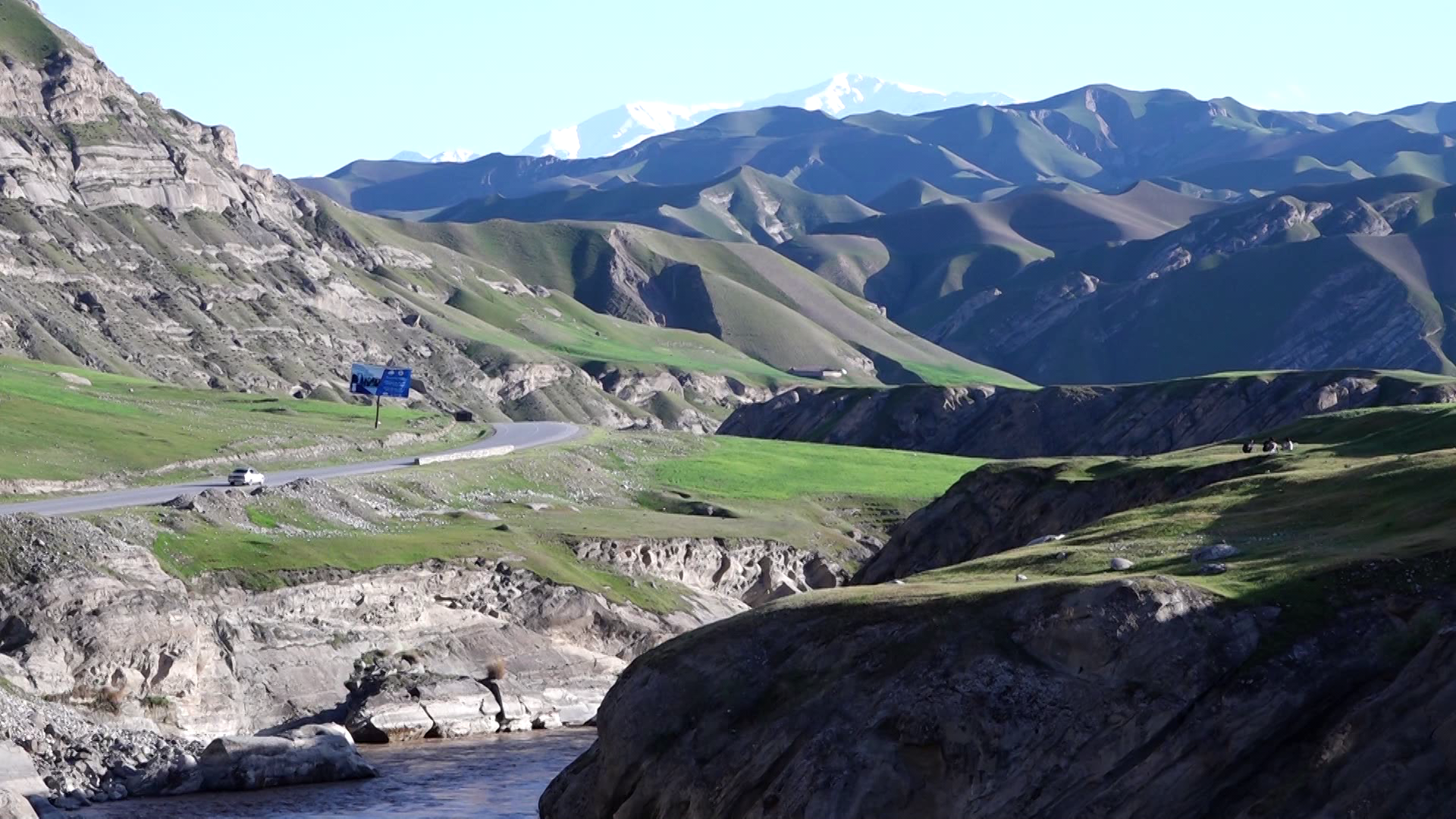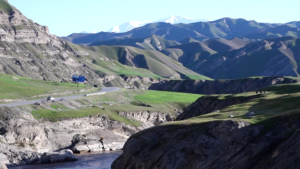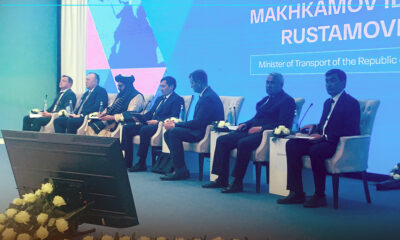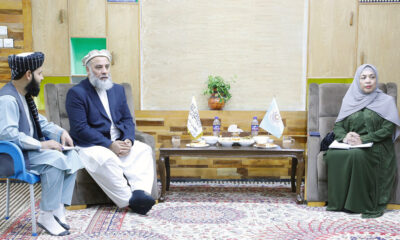Latest News
Badakhshan, battlefield for foreign extremists

 Foreign insurgent groups such as Hezb-e Islami Tajikistan, Chechens and Uighurs of China in coordination with the Taliban are fighting against the Afghan security forces in Badakhshan province.
Foreign insurgent groups such as Hezb-e Islami Tajikistan, Chechens and Uighurs of China in coordination with the Taliban are fighting against the Afghan security forces in Badakhshan province.
The Badakhshan governor says that these fighters are around 400 and that they are a part of the global terrorism in Afghanistan adding that they live with their families in Badakhshan.
Badakhshan, on one hand, is a corridor for drug trafficking of the north and northeastern Afghanistan; on the other hand, there are underground resources and mines in the province.
Mohammad Zakaria Sawda, the Badakhshan governor, said, “The foreign fighters including the members of Hezb-e Islami of Tajikistan, Islamic extremists of Uzbekistan and Chinese Uighurs, are fighting against the Afghan forces with the help of the Taliban.”
According to him, Badakhshan is a stronghold of the insurgents in Afghanistan, after Nangarhar and Helmand.
The Afghan army confirms the presence of the foreign extremist fighters in Afghanistan that are helped by the Taliban.
The government said that one of the Taliban’s commitments by the US-Taliban’s deal is to stop the movements of the other insurgent groups such as Al Qaeda. According to the security officials, not only the Taliban has not stopped these insurgent groups, but also has continued helping them – these claims however have been denied by the Taliban.
Asadullah Nadim, a military expert, said, “The Taliban, violating their commitments, are working with the foreign insurgent groups; because in some cases, this group cannot directly be involved in the war.”
The Badakhshan representatives in the lower house blame the government in the matter saying that the government is aware of the presence of the foreign insurgent groups under the Taliban, but it hasn’t taken any actions.
The presence of these foreign extremist fighters have been noticed in Yamagan, Warduj and Ragh districts of Badakhshan.
The local sources said that these fighters have just found access to the underground resources of Ragh district, and it can be an income stream for them.
Latest News
Girls’ education is a ‘vital issue’ for Afghanistan: Karzai

Former president Hamid Karzai said in a meeting with Iran’s ambassador and special representative, Hassan Kazemi Qomi, that education of girls was a “vital issue” for Afghanistan.
Karzai said he appreciated Iran’s cooperation and its standing with the Afghan people, especially Iran’s contributions to education in Afghanistan.
During the meeting, Karzai said peace and stability in the region are in the interest of all regional countries.
Latest News
Uzbekistan’s humanitarian aid arrives in Balkh

A shipment of humanitarian aid from Uzbekistan was handed over on Thursday to the local officials of Balkh province in the trade port of Hairatan.
Local authorities said the aid, which includes flour, oil, wheat, sugar and meat, has been handed over by Uzbekistan’s Surkhandarya governor to the governor of Balkh.
The governor of Surkhandarya stated the purpose of sending this aid was to support the people of Afghanistan and stressed the need for the development of good relations between the two countries.
Latest News
Afghanistan’s problems caused more damage to Pakistan than 3 wars with India: Durrani

Islamabad’s special envoy for Afghanistan Asif Durrani said on Wednesday that Pakistan has suffered more due to Afghanistan’s internal situation than Pakistan has suffered in three wars with India in terms of blood spilt and finances drained.
Durrani said at a one-day International Conference titled “Pakistan in the Emerging Geopolitical Landscape”, which was organized by the Institute of Strategic Studies Islamabad (ISSI) and the German Friedrich Ebert Stiftung (FES), that over 80,000 Pakistanis died in the two decades of the War on Terror and that his country was still counting its dead and injured.
“After the withdrawal of NATO forces, it was hoped that peace in Afghanistan would bring peace to the region. However, such expectations were short-lived,” he said.
He also stated that attacks by the Tehreek-e-Taliban Pakistan (TTP) militant group on Pakistan’s border areas increased by 65 percent, while suicide attacks increased by 500 percent.
“The TTP’s enhanced attacks on Pakistan while using Afghan soil have been a serious concern for Pakistan. Another worrying aspect is the participation of Afghan nationals in these attacks,” he said.
Durrani also said Pakistan had suffered geopolitically since the Soviet Union invaded the neighboring country.
“The post-9/11 world order has negatively impacted Pakistan. Apart from losing 80,000 citizens’ lives, including 8,000 law enforcement agency personnel, the country’s economic opportunity cost is estimated at $150 billion,” Durrani said.
Talking about the future outlook for Pakistan in the regional context, Durrani said that while “our eastern neighbor is likely to continue with its anti-Pakistan pursuits, the western border poses an avoidable irritant in the short to medium term.”
However, he said Pakistan can overcome its difficulties with Afghanistan, including the TTP challenge.
-

 Latest News5 days ago
Latest News5 days agoPakistan’s frontiers minister stresses ‘dignified’ return of Afghan refugees
-

 Latest News3 days ago
Latest News3 days agoRashid Khan named AWCC’s brand ambassador
-

 Regional3 days ago
Regional3 days agoIranian president lands in Pakistan for three-day visit to mend ties
-

 Climate Change4 days ago
Climate Change4 days agoMassive river flooding expected in China, threatening millions
-

 Latest News5 days ago
Latest News5 days agoChinese keen to invest in Panjshir-Kabul water conduit project
-

 World5 days ago
World5 days agoTwo Japan navy helicopters crash, one body found, 7 missing
-

 Sport4 days ago
Sport4 days agoACL: Aino Mina 3-0 Istiqlal Kabul; Attack Energy 3-0 Khadim
-

 Sport3 days ago
Sport3 days agoKolkata beat Bengaluru by one run in IPL as Kohli fumes at dismissal


























